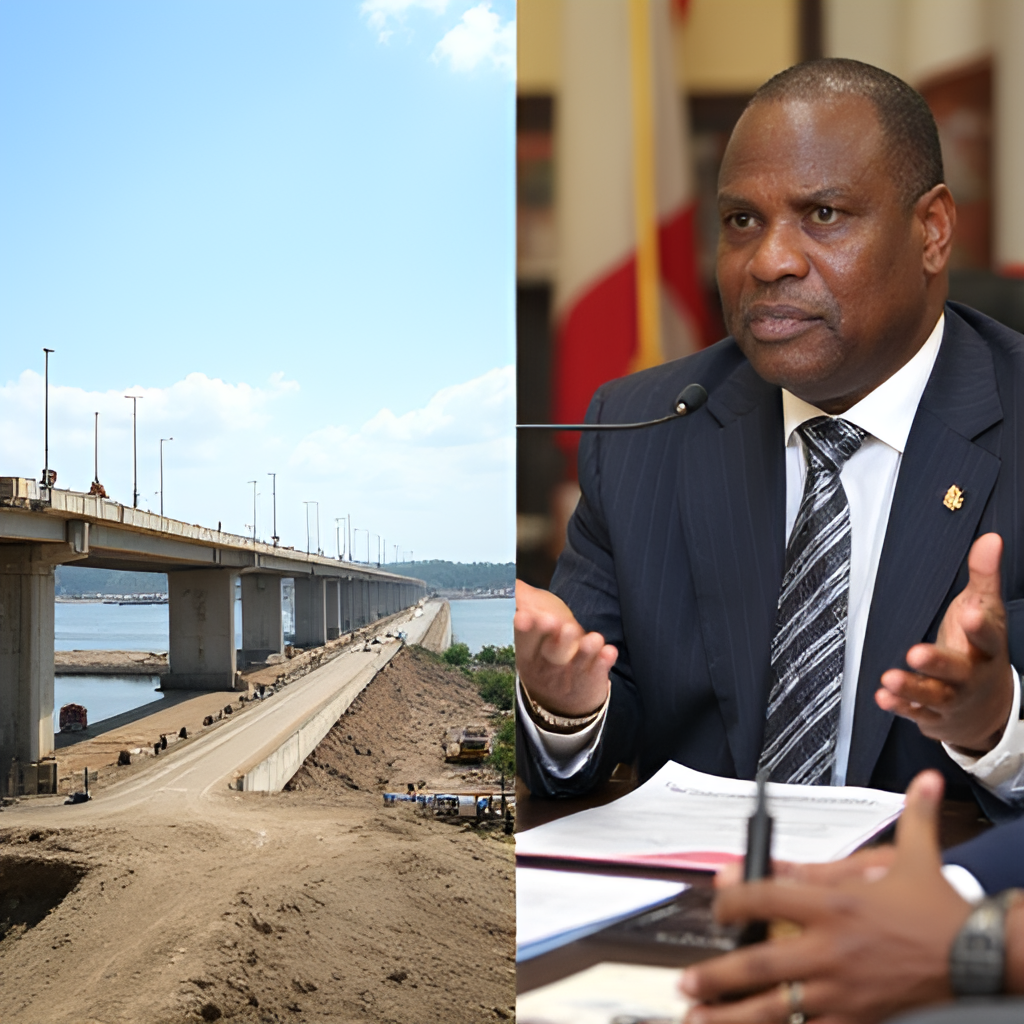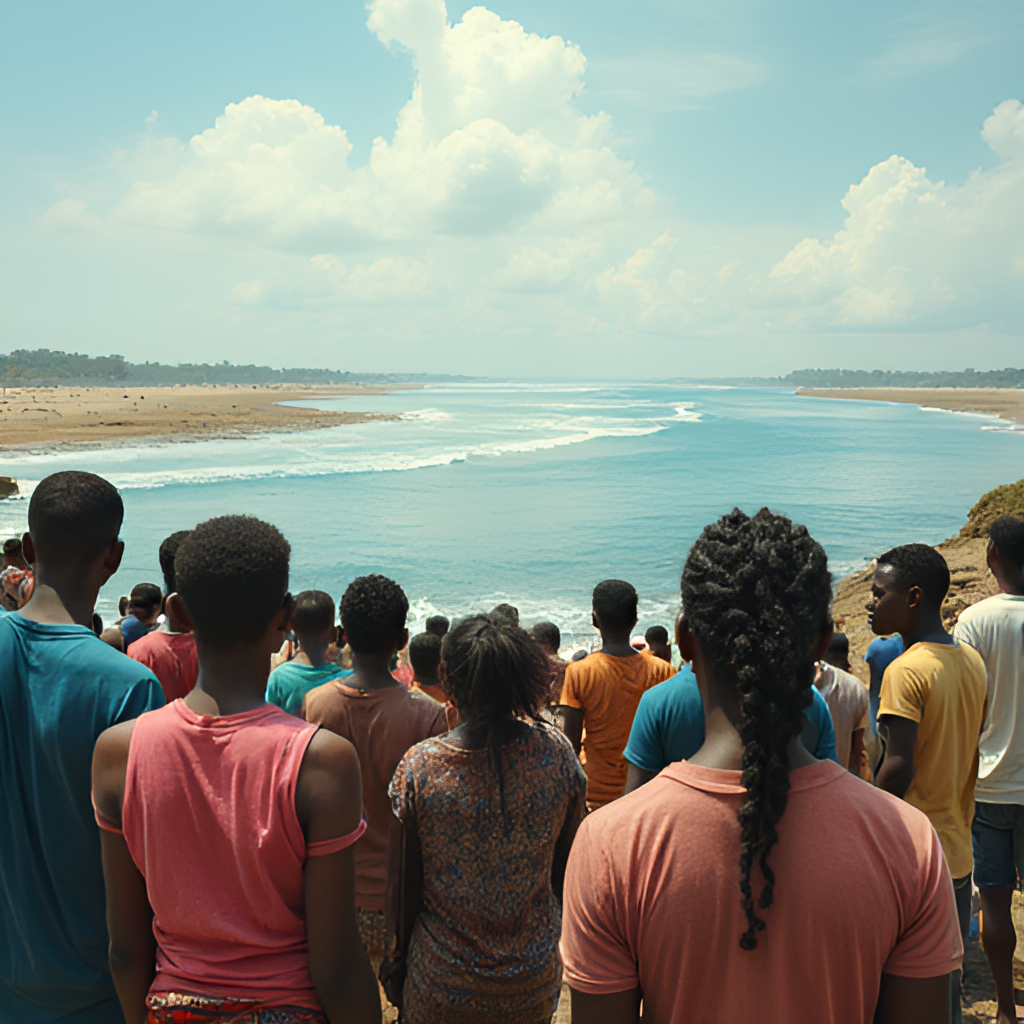Governor Siminalayi Fubara: Navigating Rivers State Through Turbulence
- Introduction: The Tenure of Governor Siminalayi Fubara
- From Accountant to Governor: Siminalayi Fubara’s Journey
- Notable Projects and Policies Under Governor Fubara
- Understanding the Rivers State Political Crisis
- The Declaration of a State of Emergency and Suspension
- Legal Battles and Reconciliation Efforts
- Impact of the Crisis on Rivers State Governance
- Looking Ahead: The Future of Governance in Rivers State
- Conclusion: Reflecting on Governor Siminalayi Fubara’s Impact
Governor Siminalayi Fubara is currently navigating the complex political landscape of Rivers State, Nigeria, a journey marked by significant challenges and notable efforts since assuming office. It’s a situation I’ve followed closely, and frankly, the level of political intensity there is something else! Since May 29, 2023, when he took the oath of office, his administration has been in the spotlight, not just for its development agenda but also due to a widely publicized political crisis that has, at times, threatened to paralyze governance.
Understanding the dynamics at play with Rivers State Governor Siminalayi Fubara requires looking beyond the headlines. It involves appreciating his background, the promises he made to the people, and the turbulent political climate he inherited and has had to manage. His time in office has certainly been anything but quiet, wouldn’t you agree? Despite the turbulence, he has consistently called for unity and focused on delivering on his mandate to the people of Rivers State, emphasizing that his policies are designed to benefit the state’s interest, especially the youth.
From Accountant to Governor: Siminalayi Fubara’s Journey
So, who is Siminalayi Fubara? Before stepping into the gubernatorial hot seat, he had a distinguished career primarily in public service, particularly in finance. Born on January 28, 1975, in Opobo Town, Opobo/Nkoro Local Government Area, Rivers State, he is an accountant by profession. He holds multiple degrees in accounting and finance, including a Master of Business Administration (MBA) and a Master of Science (MSc) from the University of Port Harcourt.
His journey through the ranks of the Rivers State civil service was steady, starting as a teacher and moving up to senior accounting roles. He eventually served as the Accountant General of Rivers State from 2020 to 2022, a position that gave him deep insight into the state’s financial workings. This background as a meticulous technocrat is often highlighted when people discuss his preparedness for the top job. Beyond his professional life, he is also described as a grassroots politician within the People’s Democratic Party (PDP), credited with helping rebuild the party structure in his local government area.
His entry into the gubernatorial race and subsequent victory in the 2023 elections, succeeding his former boss Nyesom Wike, was a significant step, propelling him from the dietro le quinte of state finance to the forefront of its political leadership. It’s fascinating how one’s career path can take such a dramatic turn, isn’t it?
Notable Projects and Policies Under Governor Fubara
Despite the political storms, Governor Fubara’s administration has pointed to several key achievements and ongoing projects aimed at developing Rivers State. One of the most ambitious is the N195.3 billion Port Harcourt Ring Road project, a massive undertaking designed to ease traffic congestion and improve connectivity across six local government areas. My experience following infrastructure projects in Nigeria tells me these large-scale road networks are crucial for economic activity, facilitating the movement of goods and people.
Beyond this flagship project, the administration has also focused on other critical sectors. This includes efforts in healthcare, with contracts awarded for the construction of zonal hospitals, and attention to education and agricultural programmes. There have also been reports of his administration addressing civil service reforms, such as clearing promotion backlogs and pensions, and plans to recruit new workers. These initiatives, according to reports, were significantly mobilized even before the political crisis intensified, suggesting a focus on governance despite the distractions.
Of course, like any administration, challenges remain, but the emphasis on infrastructure and social programs appears to be a core part of his strategy for Rivers State.

This image is a fictional image generated by GlobalTrendHub.
Understanding the Rivers State Political Crisis
The defining narrative of Governor Siminalayi Fubara’s tenure has undoubtedly been the intense political crisis. This began shortly after he assumed office and is largely seen as a power struggle involving his predecessor, Nyesom Wike, who now serves as the Minister of the Federal Capital Territory.
The crisis escalated dramatically, leading to deep divisions within the state’s political structure, particularly in the House of Assembly. We saw lawmakers divided into factions, leading to legislative turmoil and even attempts at impeachment against the governor. It’s a complex situation, and one could argue it highlights the intricate relationship between godfathers and their successors in Nigerian politics. This period has been described as one of “intense political instability” that has, at times, “paralysed governance” in the state.
The conflict has involved legal battles and public exchanges, creating a climate of uncertainty. For residents of Rivers State, I can only imagine how unsettling this must be, witnessing such high-stakes political maneuvering play out.
The Declaration of a State of Emergency and Suspension
The political impasse reached a critical point, prompting intervention from the federal government. On March 18, 2025, President Bola Tinubu declared a state of emergency in Rivers State, citing the ongoing crisis and its impact on security and governance. This was a significant development, granting the president extraordinary powers.
As part of this declaration, Governor Siminalayi Fubara, his deputy, and all members of the State House of Assembly were suspended for an initial period of six months. An administrator was subsequently nominated to oversee the state’s affairs. This move was met with varied reactions, with some challenging its constitutionality, arguing that the president lacked the power to suspend democratically elected officials.
It’s a rare occurrence in Nigerian democracy and underscores the severity of the political breakdown in Rivers State at that time. The justification provided included the inability of the different arms of government to work together and the demolition of the State House of Assembly complex.

This image is a fictional image generated by GlobalTrendHub.
Legal Battles and Reconciliation Efforts
Unsurprisingly, the crisis and the state of emergency declaration have led to numerous legal challenges. Various parties, including state governors from the opposition party, have filed suits at different courts, including the Supreme Court, questioning the legality of the president’s actions and the suspension of the state’s elected officials. These legal battles are ongoing and add another layer of complexity to the situation.
Alongside the court proceedings, there have been efforts towards political reconciliation. President Tinubu has reportedly met with key figures involved in the dispute, including Governor Fubara and Minister Wike, in attempts to broker peace and find a political solution. While meetings have taken place, the effectiveness of these reconciliation efforts in achieving lasting peace and stability in Rivers State remains a subject of observation and debate.
The interplay between legal challenges and political negotiations is crucial here, as the resolution of the crisis will likely depend on both pathways.
Impact of the Crisis on Rivers State Governance
The political crisis has inevitably had an impact on the governance of Rivers State. While Governor Fubara’s administration highlights its focus on development projects, the instability has undoubtedly created distractions and potential delays. Reports suggest that despite the challenges, the governor has remained focused on delivering projects, with some opposition lawmakers even commending his performance amidst the crisis.
However, a prolonged political deadlock can impede effective administration, budget implementation, and overall progress. The back-and-forth between political factions and the uncertainty surrounding the state’s leadership structure can create an environment where development initiatives are harder to execute smoothly. The ordinary citizens are the ones who ultimately bear the brunt of such instability, potentially affecting public services and economic activity.
It really drives home the point that political stability is not just about politicians; it has tangible consequences for the lives of everyday people.
Looking Ahead: The Future of Governance in Rivers State
What does the future hold for Governor Siminalayi Fubara and Rivers State? The situation remains fluid, with legal processes ongoing and political dynamics constantly shifting. The resolution of the crisis will depend on various factors, including judicial pronouncements, the outcomes of reconciliation efforts, and the political will of the key actors involved.
Governor Fubara has expressed optimism that the state will emerge stronger despite the challenges and has called for unity among the people. His administration continues to voice commitment to its development agenda, focusing on infrastructure, healthcare, education, and economic empowerment. However, the path forward is likely to require skillful navigation of both political obstacles and governance responsibilities.
For the people of Rivers State, the hope is for a return to full political stability that allows for sustained focus on development and progress. The unfolding events will be closely watched, not just within Nigeria but also as a case study in the complexities of democratic governance in the region.
Conclusion: Reflecting on Governor Siminalayi Fubara’s Impact
In conclusion, the tenure of Governor Siminalayi Fubara has been a period of significant activity and considerable challenge in Rivers State. From his background as a seasoned accountant rising to the state’s highest office to the unprecedented political crisis and subsequent state of emergency, his time as Rivers State Governor has been anything but ordinary. Despite the turbulence, efforts in infrastructure development and social programs have been highlighted as key areas of focus.
The political landscape in Rivers State remains dynamic, with ongoing legal and political processes aimed at finding a resolution. The ability of stakeholders to prioritize the state’s stability and development above political differences will ultimately determine the impact on the lives of its citizens. As someone observing from afar, the journey of Governor Siminalayi Fubara and Rivers State serves as a compelling example of the intricacies and challenges inherent in political leadership.